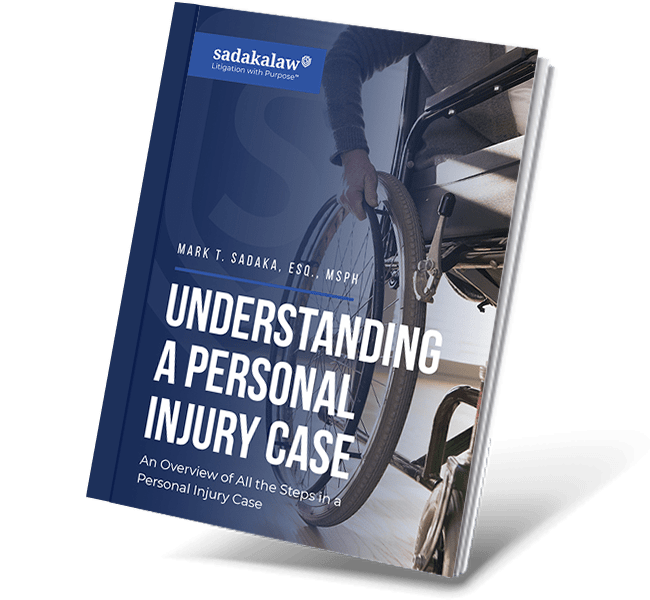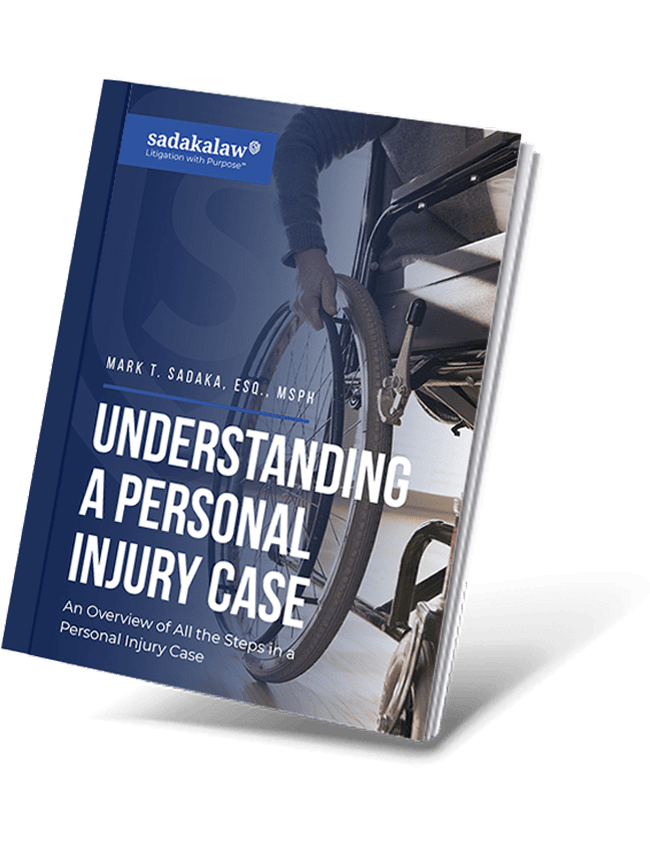
Yes. It is possible to sue your landlord if you get injured at a property you rent. If your injury results from negligence by your landlord, you could potentially sue them for personal injury.
All landlords have a legal duty to keep their properties safe for their tenants. If you get injured at a property that you rent and your injury results from some type of negligence by your landlord, you could potentially sue your landlord for personal injury.
In order to sue them, you must understand what your landlord is legally supposed to do for their tenants as far as upkeep on the property. You will also need to prove that your landlord’s negligence or actions caused your injury. If, after consulting with a lawyer, you determine that your landlord is at fault and you can prove it, you can move forward with legal action.
Keep in mind that personal injury lawsuits are all different. Each situation and set of circumstances can impact the outcome of the case. If you are planning on pursuing this type of case, you should seek out professional legal advice.
Common Accidents in Rental Properties
The first step in suing a landlord for a personal injury is determining whether the injury was caused by your landlord’s negligence. For example, you will probably not have a case if you try to sue your landlord because you cut your finger while cooking on their property. However, you might have a case if you hurt yourself because of poor infrastructure in the home.
The following are some common accidents that could be caused by landlord negligence.
Slip and Fall Accidents Due to Hazardous Conditions
In general, landlords are supposed to keep up with their building’s maintenance to keep it safe. A common injury seen at rental properties is slip and fall accidents caused by poor maintenance of infrastructure.
Slip and Fall Accidents Due To Improper Ice or Snow Removal
Snow and ice can be extremely dangerous to people walking on doorsteps and sidewalks. If a snowstorm passes without any snow or ice removal, the buildup could create a slippery surface that would be easy to slip on and hurt yourself.
In New York and New Jersey, landlords must remove snow and ice from doorsteps, sidewalks, and parking lots on their property. This requirement is for the safety of their tenants and guests. If a landlord fails to adequately remove snow or ice following a storm and one of their tenants slips and becomes injured, the landlord could be liable for personal injury damages.
Swimming Pool Accidents
Swimming pools can be dangerous for anyone that doesn’t know how to swim well. Pools that are left to be easily accessible and unsupervised are even more dangerous.
Landlords with a pool on their property are legally required to have a locking fence around the perimeter. They should also have adequate signage that warns of slippery surfaces.
If a tenant or visitor to the property happens to hurt themselves in or near a pool and the landlord does not have this fencing or signage, they could be liable for personal injury damages.
Accidents Related to Inadequate Building Security
Another type of accident that is unfortunately common in rental properties like apartments is those related to inadequate building security. This would include robberies and home invasions that result in personal injury to the tenant.
The landlord might be at fault in one of these situations if proven that they were negligent. Signs of landlord negligence include broken locks on the building or a faulty security system. Essentially, the landlord is supposed to provide reasonable security for their rental properties. If they fail to provide that and a tenant gets hurt, the landlord may be liable for personal injury damages.
What Your Landlord Owes You

If you are renting your property from a landlord, you need to know that you have rights as a tenant. Specifically, there are certain things that a landlord is required to provide for you to prevent injuries and to increase safety on their property.
We have gathered a list of some of the most important things your landlord should provide for you as their tenant. If they fail to take care of these for you and you can prove that an injury was caused because of a lack of one or more of these requirements, then you would have legal grounds to sue your landlord.
Legal requirements of landlords include:
- Smoke detectors and carbon monoxide detectors
- Maintenance of plumbing, heating, and electrical systems
- Maintenance of common areas, making sure that they are free of unsafe conditions like poor infrastructure or dangerous materials
- Keep property free of cockroaches, mice, rats, and other vermin
- Keep property free of mold
- Ensure there is no lead paint anywhere on the property
- Maintenance of fire escapes
- Maintain adequate lighting in common areas to prevent injuries and increase safety
If you, as a tenant, notice that your landlord is not keeping up with any of these requirements, then you must tell your landlord and give them time to fix the issue. You will have a much better standing in court if you can prove that you alerted your landlord of the unsafe condition before your injury. This action will help to establish your landlord’s negligence.
You Must Prove That Your Landlord Is Liable for Your Injury
One crucial part of moving forward with a personal injury lawsuit against your landlord is proving that they are liable for your injury. We have discussed some of the many responsibilities that your landlord has, but simply not following through is not enough for you to sue them successfully. In general, there are five key elements that you must prove to show that your landlord neglected the property and your safety. These elements are as follows:
- The landlord was supposed to maintain the area where the accident occurred. This maintenance would include any of the responsibilities that we mentioned in the previous section. For example, the landlord would be liable if you hurt yourself on a staircase because of an improperly installed handrail. However, if you cut your finger in the kitchen or tripped over a rug that is your property, then the landlord is not at fault.
- The landlord knew about the dangerous condition but didn’t do anything to fix it. To prove this element, you need to show that the landlord was notified of the issue that was their responsibility before the accident. For example, if you noticed that the handrail on the staircase is not secure, you need to notify your landlord and ask them to fix it. If they neglect to do so, they are liable for any accidents caused by the faulty handrail.
- It would not have taken a lot of time or been too expensive to fix the issue. It can take time for the landlord to save money or hire a contractor to resolve the issue in some situations. If you can prove that the fix would not have been too expensive or time-consuming, then you might have grounds to sue them.
- The neglect of the landlord was the direct cause of your injury. You must prove that your landlord’s negligence of the issue was brought to their attention and is the direct cause of your injury. In our example of the faulty handrail on the staircase, you must prove that you injured yourself because of the handrail and that you would have been safe if it had been correctly installed.
- You, as the tenant, suffered damages because of the landlord’s neglect. For this element, you must prove that if the landlord had kept the property in good condition, you would not have been hurt and would not have incurred medical bills or lost wages.
If you can prove all five of these elements, then you might have grounds to sue your landlord for a personal injury.
Types of Compensation You Could Receive

If you can successfully sue your landlord for a personal injury, then you will likely receive some sort of settlement. The settlement will be a sum of money split into different categories of payments. The types of compensation that you could receive include:
- Medical expenses directly related to the treatment of the injury
- Non-medical expenses directly related to the injury (medical devices, transportation to appointments, etc.)
- Lost wages due to the accident and injury
- Pain and suffering related to the accident and injury
It is essential to understand the differences between the types of compensation that you could receive. There are different tax implications associated with each type. Stay on top of the different categories of payments and their tax implications so that you can be ready to pay the appropriate taxes on your settlement.
Contact Us Today
Were you injured in your rental property due to landlord negligence? Maybe you hurt yourself due to poor infrastructure or slipped on ice that a landlord should have removed. If so, then we can help you sue your landlord for personal injuries. We are here to provide legal representation for anyone needing it. Call the Law Offices of Sadaka Associates at 1 (800) 810-3457 for a consultation today.


